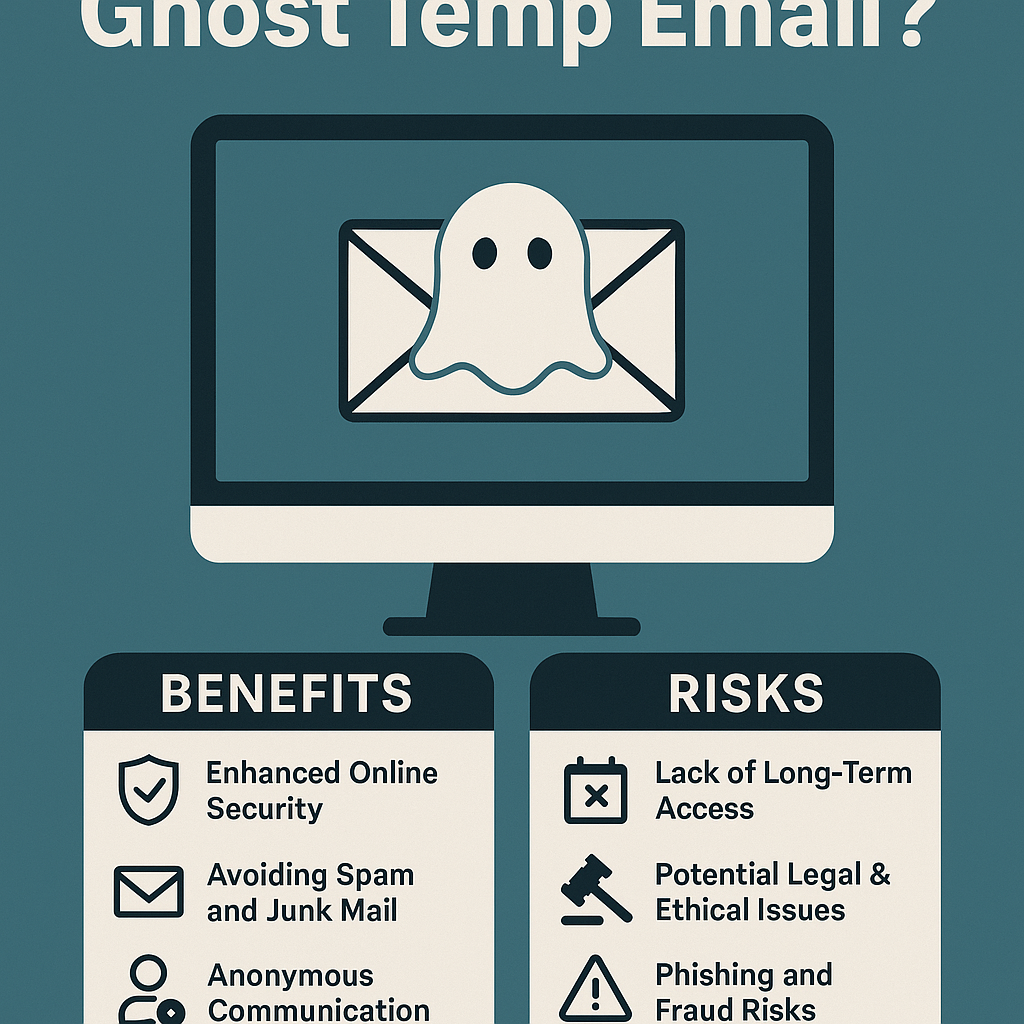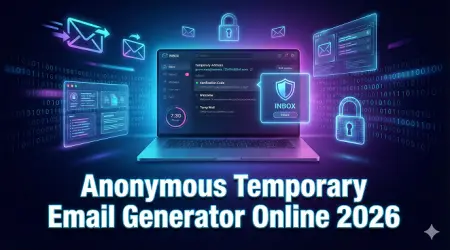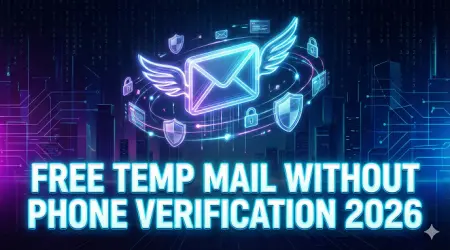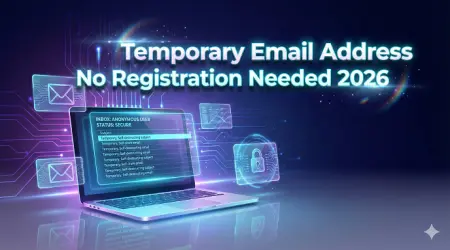

What is a Ghost Temp Email? 7 Powerful Benefits & Hidden Risks
Introduction to Ghost Temp Email
A short-lived, non-traceable, automatically created temporary email account is called a ghost temp email. It expires or can be deleted after its intended use, such as after being used to receive a verification code.
How Ghost Emails Differ from Regular Temporary Emails
Whereas a normal tempmail could have a duration of a few minutes or a few hours, ghost tempmails occasionally offer much more privacy functionality like:
- No personal information needed to sign up.
- Self-destructing inboxes.
- In others, end-to-end encryption.
Why Ghost Temp Emails Exist
The emergence of ghost emails is not by chance but rather solve real life problems.
Protecting Privacy Online
As information leakage becomes a trend, the ghost emails assist in protecting your main inbox against such leakage.
Avoiding Spam and Junk Mail
Nobody likes to get hundreds of promotional messages when he or she subscribes to a free eBook. With ghost temp mails it allows you to bypass that headache.
Anonymous Communication Purposes
Anonymity is critical in some forums or chatrooms. Using Ghost temp emails you can take part and never be connected to your own individuality.
How a Ghost Temp Email Works
The Technology Behind Ghost Emails
The vast majority of ghost email providers make up randomized emails that allow incoming messages to be forwarded to an interim inbox on their server.
Time-Limited vs. Permanent Ghost Accounts
- Time-Sensitive: Emails go away in minutes or hours.
- Semi-Permanent: Some services are deployable for as long as wanted- until manually cancelled.
Benefits of Using a Ghost Temp Email
Enhanced Online Security
Ghost temp emails ensure it is not possible to get phishing to your main account.
Protection Against Data Breaches
When the ghost email is hacked, your actual email will not be compromised.
Quick Account Creation Without Real Email
Ideal when it comes to one off sign ups, free trial or access to gated material.
Risks and Limitations of Ghost Temp Emails
However, while ghost temp emails appear to be the ultimate privacy online solution, they do come with its disadvantages.
Lack of Long-Term Access
Most ghost emails are not very permanent and thus cannot be depended on in the long-term communication. In case it is lost, you might lose all accounts connected with account access.
Potential Legal & Ethical Issues
Fraud or the use of ghost emails to commit fraud as well as in scams or trick side-step bans can have legal repercussions. They are privacy places--Not criminals.
Phishing and Fraud Risks
Due to the wide availability of ghost emails, in some instances cybercriminals are phishing using them and such phishing activity could increase distrust in platforms that filter them.
Ghost Temp Email vs. Disposable Email vs. Burner Email
Ghost emails are confused with other forms of temporary email by many people. This is how they vary:
Key Similarities
- Each of them ensures temporary anonymity.
- Each will make it less easy to get spam and spam-free personal mailboxes.
Key Differences
| Feature | Ghost Temp Email | Disposable Email | Burner Email |
|---|---|---|---|
| Privacy Level | High (often untraceable) | Medium | Medium to High |
| Duration | Varies (minutes to days) | Usually very short (minutes to hours) | Days to weeks |
| Encryption | Sometimes offered | Rare | Rare |
| Best Use | Secure, anonymous activities | Quick sign-ups | Extended private use |
Best Use Cases for Ghost Temp Emails
There are particular conditions when ghost temp emails are best suited:
Signing Up for Free Trials
Do not share your primary email when test out software or Internet site.
Protecting Identity in Forums and Chats
With ghost emails online communities, anonymous is kept when connected.
Testing New Websites or Apps
You do not know how credible a certain website is? Then do not hesitate to provide a ghost temp email address to the site rather than yourself.
Safety Tips When Using Ghost Temp Emails
Avoiding Scams
It is better not to use ghost emails to do transactions, logins to sensitive pages, or important business communications because they are not that safe.
Balancing Privacy with Security
Use ghost emails wisely:
- In case of low risk activities (sign-ups, trials).
- But not in case of high-value accounts such as PayPal or Gmail or business emails.
FAQs on Ghost Temp Email
1. Is a ghost temp mail totally anonymous?
Yes, information about personal data is not very often needed in ghost temp emails. Nonetheless, the degree of anonymity is based on the provider.
2. Is there a way to get back a ghost email after it was deleted?
No- majority of ghost emails disappear forever when deleted or expired.
3. Are ghost temp emails not legal?
Yes, when used to protect privacy and spam they are allowed. Fraudulent or scam related is illegal.
4. Do ghost emails get attachments?
There are providers who can do simple attachments but in most cases, it is restricted.
5. How does ghost email and burner phone numbers differ?
The ghost emails shield the online identity whereas burner numbers shield the phone events.
6. Do I need to do ghost emails on the social accounts?
Not advisable- you will get denied access as the ghost email you used lapses.
Conclusion
Ghost temp emails represent a useful privacy protection tool on the internet, as it provides users with the ability to protect their identity, avoid spam, and protect against other hackers. While they are great for allowing anonymous sign-ups and trials, they are also risky, primarily because of their temporary nature and inadequate security.




